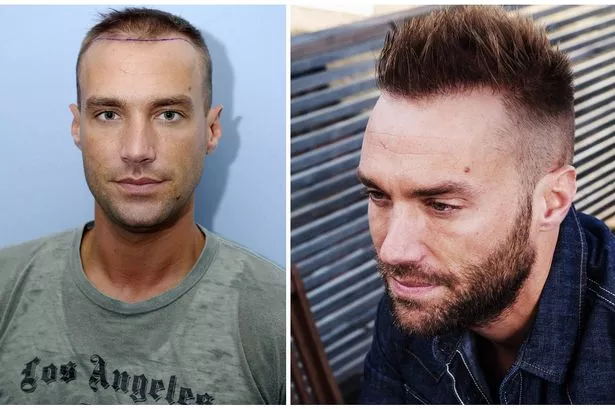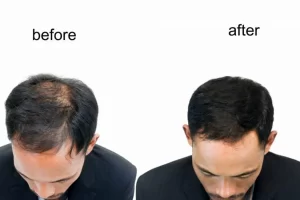Have you been facing a lot of hair loss? Or have you noticed a thinning of your hair? Or do you suffer from alopecia or other hair issues that lead you to shave your head?
A hair transplant is one of the most effective and long-term treatments for various hair problems. A hair transplant can restore the texture, thickness, and overall appearance of your hair, giving you the appearance of a more giant head of hair.
Visit Areeva Cosmetic Surgery Centre, one of the best hair clinics in Navi Mumbai, if you want to repair your thinning hair.
Dr. Audumbar Borgaonkar, a highly skilled and experienced hair transplant surgeon, will perform the most desirable hair transplant in Navi Mumbai at Areeva.
Dr. Audumbar Borgaonkar is also a board-certified plastic and reconstructive surgeon specializing in FUE and Bio-FUE hair transplants.
Let’s look at who makes a suitable candidate for hair transplantation.
Hair transplant therapy is recommended for persons between 21 and 60. The procedure is customized to the patient’s needs, taking into account age, scalp condition, overall health, hair texture, density, and so on.
You might consider hair transplantation if you have any of the following symptoms or conditions:
• Males who have been told they have male pattern baldness.
• Women who have thinning hair and hair loss.
• People who have a different hair issue can be treated with a hair transplant.
Hair transplant surgery should also only be considered if the following conditions are met:
• Patients have a stable donor area and sufficient donor hair for the transplant and the future.
You must take precautions after a hair transplant, just as you would after any other therapy, in addition to the necessary pre-hair transplant care.
Continue reading to find out more about the necessary pre-and post-hair transplant care mentioned by the incredible hair transplant surgeon, Dr. Audumbar Borgaonkar
Let’s start with the basics, shall we?
Pre-Operative Care Instructions
Before undergoing hair transplantation, it is necessary to conduct comprehensive pre-hair transplant care. This will guarantee that the transplant goes smoothly and that the patient is at ease throughout the procedure. 10 days before the surgery, take the following hair transplant precautions:
• In addition to vitamins, particularly Vitamin B and E, blood thinners, and herbal remedies, the patient should avoid aspirin, Advil, anti-inflammatory medicines, painkillers, and steroids and cortisone creams that may increase the risk of bleeding after surgery.
• Alcohol and smoking should also be avoided during this time.
• The night before surgery, the patient should get enough sleep and avoid using hair spray, gel, or other styling products.
• Additionally, the patient must take any prescribed medications before arriving at the clinic on the day of the surgery.
Additional instructions to follow on the day of the hair transplant are as follows:
• Use a mild shampoo on your hair, eat a light lunch, and limit your caffeine intake.
• Do not exercise, run, jog, or indulge in strenuous activity.
• The hair transplant will begin with an anaesthetic injection into the areas of the patient’s head where baldness and hair loss are evident.
• In a Follicular Unit Extraction (FUE) hair transplant, the surgeon will extract individual hair follicles from healthy scalp regions and implant them into bald patches. This operation is usually done in a series of two to four-hour sessions.
• A Follicular Unit Transplantation (FUT) surgery, on the other hand, entails the surgeon removing a few inches of skin graft from the donor area, breaking it into tiny pieces, and extracting hair follicles from these pieces. These follicles will subsequently be implanted into the recipient’s small incisions. It will take between 4 and 6 hours to finish.
Now, let’s talk about Post-Operative Care Instructions.
• As with any medical operation, it is vital to take proper care of yourself and follow all necessary precautions after hair transplant surgery.
• You may have some soreness in the scalp for a few days following a hair transplant, warns Dr. Audumbar Borgaonkar, a specialist at the leading hair transplant clinic in Navi Mumbai. Doctors commonly prescribe pain relievers, antibiotics, and anti-inflammatory drugs. It’s also critical to avoid touching the recipient’s region and follow the recovery instructions.
• To clean the incision line and surgical region, the patient must wear bandages for at least a day after the procedure and keep them on overnight. Remove the bandage or headwrap with scissors the day after the transplant to avoid swelling.
• Two days after the procedure, the donor area is washed and cleaned for post-hair transplant treatment. The patient must sanitize the recipient and donor sites by repeatedly pouring water over them on this day.
• After the second day, the patient must cleanse the treated area twice a day with a mild, antibacterial shampoo and conditioner. This is crucial for hair transplant care because it guarantees that the scalp flakes and crust are removed and the prevention of infection.
Additional important post-hair transplant care guidelines are as follows:
• Don’t drink, smoke, or use pain relievers for at least two weeks after surgery.
• For at least two weeks after the procedure, do not exercise or engage in any strenuous activities. Take the prescribed meds daily, advises a hair transplant expert from Navi Mumbai’s leading hair transplant facility.
•You should also take precautions when sleeping after a hair transplant. To keep the transplant intact and safe, it is recommended that you sleep with your head up. This can be accomplished by placing multiple cushions or a towel behind the patient’s head.
• In addition, for at least two weeks following the transplant, use the shampoo, conditioner, and lotion recommended by the doctor, and minimize exposure to heat and the sun for three weeks. Swimming is also not recommended during this period.
Hair transplantation has progressed tremendously as new methods and technologies have become available in addition to the traditional FUE and FUT procedures.



